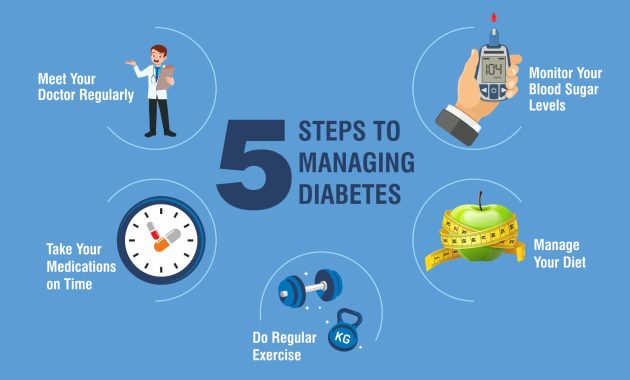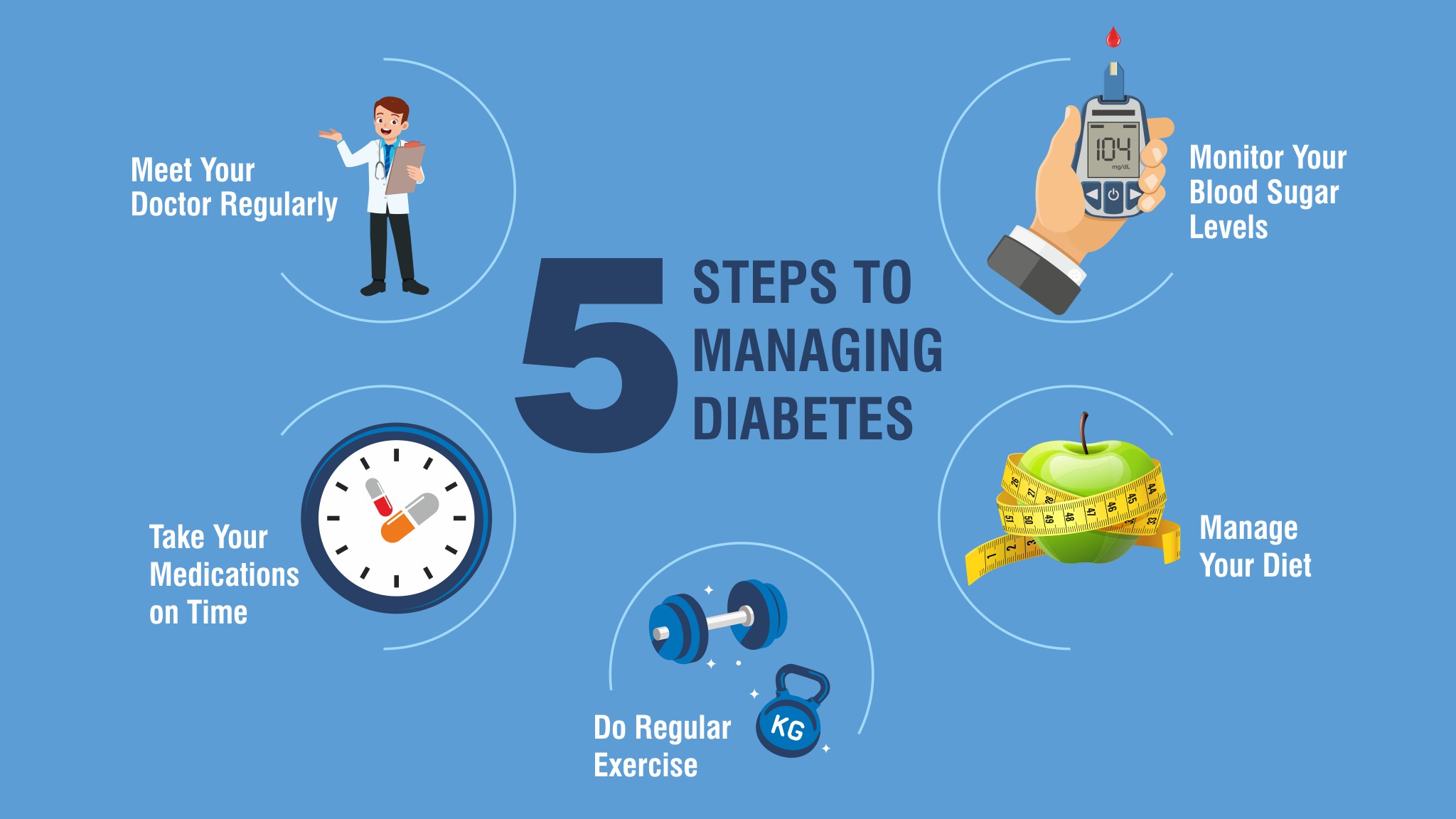
How to Gain Control Over Diabetes Starting in 7 Days: A Practical Guide
The diagnosis of diabetes can be overwhelming. It often feels like a life sentence. Many individuals grapple with managing their blood sugar levels. They also face the complex lifestyle changes. But the good news is that control is achievable. This guide provides a practical approach on how to gain control over diabetes starting in 7 days. It focuses on actionable steps and realistic expectations. It aims to empower you to manage your health effectively.
Understanding Diabetes: A Quick Overview
Diabetes is a chronic metabolic disorder. It is characterized by elevated blood glucose (sugar) levels. This happens because the body cannot produce or effectively use insulin. Insulin is a hormone. It regulates the movement of glucose from the blood into cells for energy. There are several types of diabetes. They each have different causes and require specific management strategies.
Type 1 Diabetes
Type 1 diabetes is an autoimmune disease. The body’s immune system attacks and destroys insulin-producing cells. These cells are located in the pancreas. This type typically develops in childhood or adolescence. It requires lifelong insulin therapy.
Type 2 Diabetes
Type 2 diabetes is the most common form. It is often linked to lifestyle factors. These factors include obesity, physical inactivity, and poor diet. In type 2 diabetes, the body either doesn’t use insulin properly. Or it cannot produce enough insulin to maintain normal glucose levels.
Gestational Diabetes
Gestational diabetes develops during pregnancy. It is characterized by high blood sugar levels. It usually resolves after childbirth. However, it increases the risk of developing type 2 diabetes later in life.
The Seven-Day Plan: Immediate Steps to Take
Gaining control over diabetes requires commitment. This plan offers a structured approach. It focuses on immediate changes. It aims to impact blood sugar levels within the first week. Remember to consult with your healthcare provider before making significant changes.
Day 1: Assess and Plan
The first step is to assess your current situation. Take a blood glucose reading. Keep a food diary, noting what you eat and when. Schedule an appointment with your doctor. Discuss your goals. Create a personalized plan based on their recommendations.
Day 2: Nutrition Overhaul
Focus on a diabetes-friendly diet. This means prioritizing whole, unprocessed foods. Eat plenty of non-starchy vegetables. Choose lean proteins. Opt for complex carbohydrates. Limit sugary drinks and processed foods. Portion control is also key.
Day 3: Hydration and Fiber
Drink plenty of water throughout the day. Water helps with blood sugar control and overall health. Increase your fiber intake. Fiber slows down the absorption of sugar. Good sources of fiber include vegetables, fruits, and whole grains. Aim for at least 25-30 grams of fiber daily.
Day 4: Physical Activity
Start incorporating physical activity into your routine. Even a short walk can make a difference. Aim for at least 30 minutes of moderate-intensity exercise most days of the week. This could be brisk walking, cycling, or swimming. Exercise helps improve insulin sensitivity.
Day 5: Monitor and Adjust
Continue monitoring your blood glucose levels regularly. Note how your body responds to diet and exercise changes. Adjust your plan as needed. You might need to make changes to your meal plan. Or you might increase your exercise intensity.
Day 6: Stress Management
Stress can negatively impact blood sugar levels. Practice stress-reducing techniques. These include deep breathing exercises, meditation, or yoga. Adequate sleep is also crucial. Aim for 7-8 hours of quality sleep each night.
Day 7: Review and Sustain
Review your progress. Evaluate what worked and what didn’t. Make a plan to sustain your new habits. The goal is long-term control. This requires consistent effort and dedication. Celebrate your achievements. Seek support from family, friends, or a support group.
Dietary Strategies for Diabetes Control
Diet plays a central role in managing diabetes. A well-planned diet can significantly impact blood sugar levels. It can also improve overall health. Here are some key dietary strategies:
Focus on Whole Foods
Prioritize whole, unprocessed foods. These foods include fruits, vegetables, lean proteins, and whole grains. They are rich in nutrients and fiber. Fiber helps regulate blood sugar levels. It also promotes satiety.
Control Carbohydrate Intake
Pay attention to carbohydrate intake. Carbohydrates have the most significant impact on blood sugar. Choose complex carbohydrates over simple sugars. Examples include whole grains, beans, and lentils. Monitor portion sizes to avoid overeating.
Choose Healthy Fats
Include healthy fats in your diet. These fats include those found in avocados, nuts, and olive oil. They help improve insulin sensitivity. They also contribute to heart health. Limit saturated and trans fats.
Plan Your Meals
Plan your meals and snacks in advance. This helps you stay on track. It also prevents impulsive unhealthy choices. Keep healthy snacks readily available. This helps you avoid hunger pangs.
Read Food Labels
Become familiar with food labels. Pay attention to serving sizes, carbohydrate content, and added sugars. Choose foods with low sugar content. Opt for those with high fiber content.
Exercise and Diabetes Management
Regular physical activity is crucial for managing diabetes. Exercise helps improve insulin sensitivity. This allows your body to use insulin more effectively. It helps lower blood sugar levels. It also offers numerous other health benefits.
Types of Exercise
Both aerobic and resistance exercise are beneficial. Aerobic exercise includes activities like walking, running, and swimming. Resistance exercise includes weight training. Aim for a combination of both types. This provides the most comprehensive benefits.
Exercise Guidelines
Aim for at least 150 minutes of moderate-intensity aerobic exercise per week. Or you can perform 75 minutes of vigorous-intensity exercise. Include strength training exercises at least twice per week. This helps build muscle mass. It also improves metabolism.
Monitor Blood Sugar
Monitor your blood sugar levels before and after exercise. This helps you understand how your body responds. Adjust your exercise routine as needed. Be prepared to treat low blood sugar. This is especially important if you are taking insulin or certain medications.
Stay Hydrated
Drink plenty of water before, during, and after exercise. This helps prevent dehydration. It also supports optimal performance. Dehydration can negatively impact blood sugar levels.
Medication and Diabetes Control
Medication is often necessary to manage diabetes. The type of medication depends on the type of diabetes. It also depends on the individual’s needs. Always take medication as prescribed by your doctor. Never change your dosage without consulting them.
Type 1 Diabetes Medication
People with type 1 diabetes require insulin therapy. Insulin is essential for survival. It can be administered through injections or an insulin pump. Different types of insulin are available. They have different onset and duration of action.
Type 2 Diabetes Medication
People with type 2 diabetes may need oral medications. Or they may need injectable medications. These medications work in various ways. They may help the body produce more insulin. They may also improve insulin sensitivity. They might also reduce glucose production by the liver.
Regular Monitoring
Regularly monitor your blood sugar levels. This helps you assess the effectiveness of your medication. It also allows you to make necessary adjustments. Discuss any concerns with your healthcare provider.
Potential Side Effects
Be aware of potential side effects of your medication. Discuss any concerns with your doctor. They can help you manage any side effects. They can also adjust your medication if needed.
Lifestyle Changes for Long-Term Success
Diabetes management is a lifelong journey. It requires a commitment to healthy lifestyle choices. These changes contribute to long-term success. They can also improve your overall quality of life.
Stress Management
Manage stress effectively. Chronic stress can raise blood sugar levels. Practice relaxation techniques. These include deep breathing, meditation, or yoga. Get enough sleep. Aim for 7-8 hours of quality sleep each night.
Regular Checkups
Attend regular checkups with your healthcare provider. This includes visits to your doctor, eye doctor, and podiatrist. Early detection and treatment can prevent complications. These include eye problems, nerve damage, and foot problems.
Foot Care
Take good care of your feet. Diabetes can affect blood flow to the feet. Check your feet daily for any cuts, sores, or blisters. Wash your feet daily with warm water and mild soap. Dry them thoroughly. Wear properly fitted shoes and socks.
Smoking Cessation
If you smoke, quit. Smoking increases the risk of diabetes complications. These include heart disease and nerve damage. Seek help from your doctor. They can help you develop a smoking cessation plan.
Frequently Asked Questions
Can I gain control over diabetes in 7 days?
While significant progress can be made in 7 days, it is a starting point. The goal is to establish healthy habits. These habits will help you manage your diabetes long term. Individual results will vary. But consistent effort is key.
What if I miss a dose of medication?
Follow your doctor’s instructions. Contact your doctor or pharmacist for guidance. Do not double your dose. Never change your medication schedule without consulting them.
How can I find support?
Seek support from your healthcare team. This includes your doctor, a diabetes educator, and a registered dietitian. Join a diabetes support group. Connect with others who understand what you are going through. [See also: Related Article Titles]
Is there a cure for diabetes?
Currently, there is no cure for diabetes. However, diabetes can be effectively managed. Lifestyle changes, medication, and regular monitoring can help people with diabetes live long and healthy lives. Research is ongoing. Scientists are working to find new treatments and potential cures.
Conclusion: Taking Charge of Your Health
Gaining control over diabetes is possible. It starts with understanding your condition. It continues with making informed choices. This guide provides a roadmap. It offers practical steps to take. These steps start within the first week. Remember to consult your healthcare provider. They can help you create a personalized plan. They can also provide ongoing support. By taking action, you can regain control over your health. You can also improve your quality of life. Start today. Take control of your diabetes. You deserve a healthier future.

